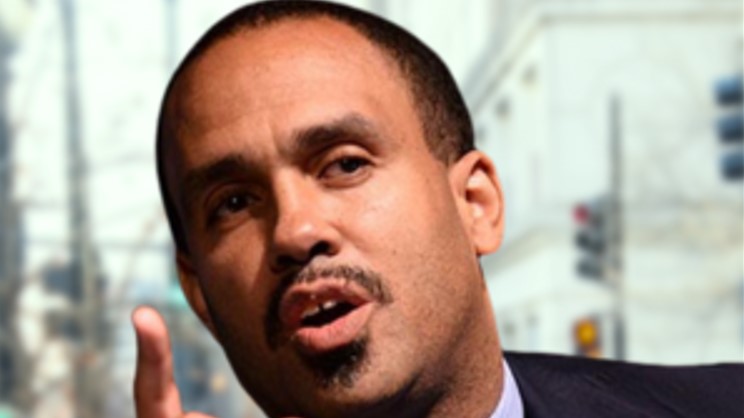By Dedrick Asante-Muhammad
For nearly a decade, the Joint Center for Political and Economic Studies — America’s Black think tank — has advocated for greater African American representation among government staff, particularly within high-level roles. Diversity within the executive branch isn’t just a matter of representation– it’s about ensuring our government reflects the full spectrum of American voices as it grapples with issues like racial and economic inequality that persist across the nation.
At the Joint Center, we see the inclusion of communities of color at all levels of federal staffing as essential for a government equipped to address disparities in economic opportunity, health and social justice.

(Courtesy Photo)
When Black Americans and other marginalized groups are excluded from top government positions, their communities risk being underserved and underfunded. Diverse staff play a vital role in advising lawmakers and policymakers, shaping legislative priorities and ultimately guiding federal investments. Without these voices at the table, policy outcomes will likely continue to overlook the needs of those who have historically been left behind.
To the previous administration’s credit, data released by the Biden White House in 2022 showed that Black Americans held 11 percent of the highest-ranking, commissioned officer positions within the White House. These top staff — known as assistants, deputy assistants, and special assistants to the president—are key advisors in setting national priorities. While this was a positive step, Black staff remained concentrated in the lower ranks, with only 9 percent serving as assistants to the president (the highest level) and 12 percent in special assistant roles (the lowest level). The numbers tell us there is room for improvement, particularly at the highest ranks where decisions impacting millions of Americans are made.
In contrast, at the time of writing this piece, President-elect Trump has only named one Black person to his incoming administration. Scott Turner, who has been tapped to lead the Department of Housing and Urban Development, stands as the sole Black appointee at the time of print. This lack of Black representation in the president-elect’s cabinet is not just a missed opportunity but a glaring concern, given the urgent need for the nation to move past its historic divisions. The Trump administration still has the chance to take tangible steps to improve the representation of Black Americans in senior roles. We urge this administration to consider the following actions:
Prioritize Black appointments to vacant commissioned officer positions
As positions open within the ranks of assistant to the president, deputy assistant and special assistant, bringing in African American voices as part of a priority to include underrepresented voices is critical. Appointing qualified Black Americans to these roles is an investment in better, more representative decision-making.
Increase transparency with employee demographics across the executive office
Federal law requires disclosure of staffing data for the White House Office, but transparency can go further. Disclosing demographic information for all 14 agencies within the Executive Office of the President would send a powerful message of commitment to accountability and inclusivity.
Report on personnel diversity more frequently and with detail
High turnover is an ongoing challenge within many administrations. Publishing quarterly updates on the demographics of commissioned officers, other federal employees and vacancies provides an accurate reflection of the administration’s progress. Regular reporting creates transparency and can help ensure that progress toward racial inclusion remains a priority.
Increasing Black representation within the federal government is about leveling the playing field and ensuring that all Americans have an equal stake in the decisions shaping their lives. Commissioned officers hold the power to initiate high-level inquiries, secure meetings with senior leaders, and influence outcomes that affect communities nationwide. When Black Americans are given these opportunities, it enhances their ability to build influence and networks within government, eventually transitioning to influential roles across public and private sectors. It’s an investment in future leadership for a better America.
We call on this administration to embrace the path toward a government that better reflects our nation’s diversity and the breadth of lived experiences across communities. With thoughtful appointments, transparent reporting, and a commitment to inclusion, the Trump administration can exceed previous benchmarks and pave the way for a more inclusive future.
The Joint Center for Political and Economic Studies stands ready to support these efforts and provide data-driven insights on fostering diversity and inclusion at all levels of government. Let us seize this moment together to build a federal government that truly represents and serves all Americans.
The post Election reflection: A chance for a more inclusive government appeared first on AFRO American Newspapers.










